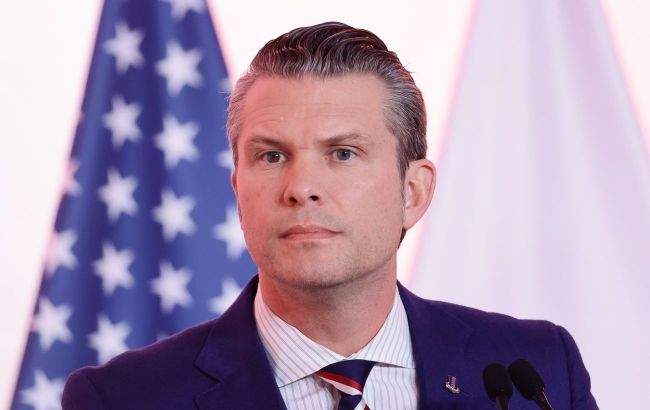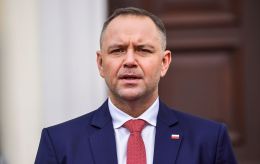US to strengthen military presence in Japan to deter China’s aggression, says Hegseth
 Photo: US Defense Secretary Pete Hegseth (Getty Images)
Photo: US Defense Secretary Pete Hegseth (Getty Images)
The US and Japan will deepen their coordination in the defense sector. Specifically, US military forces have already started shifting their operations in Japan to a new "war-fighting" command, informs Bloomberg, citing US Secretary of Defense Pete Hegseth.
"America and Japan stand firmly together in the face of aggressive and coercive actions by the communist Chinese," he said following a meeting with Japanese Defense Minister Gen Nakatani.
Hegseth stated that the US will increase the personnel of the new combined command in Japan, which will manage the initial military response from Washington to a regional crisis. This command will also closely cooperate with the recently established Japanese military command overseeing air, ground, maritime, and other forces.
According to the US Secretary of Defense, US forces in Japan will become a "war-fighting headquarters."
"That increases our readiness to respond to contingency or crisis, support US operations and help Japan and US forces defend this territory," Hegseth explained.
Japanese officials say they sought assurances that Washington would stick to plans developed under the Biden administration. These plans involve increasing the US military presence in Japan, particularly through the creation of a joint forces headquarters. While Tokyo is increasing its defense spending, it continues to rely heavily on Washington for its security. This reliance is due to the threats posed by China and North Korea.
Previously, US President Donald Trump urged Japan to spend more on defense and pay more for American military bases. However, Hegseth and Nakatani stated that the topic of Japan’s defense budget and how much it pays the US for the bases was not raised during their meeting. The Japanese Minister of Defense clarified that the main focus of the meeting was on overall strategy and ways to deepen the alliance.
Notably, in late December 2024, the Pentagon made a statement regarding Japan. They reported that Washington and Tokyo had decided to strengthen expanded deterrence forces to promote regional stability and prevent the outbreak of conflicts. This decision was driven by increasingly serious strategic and nuclear threats around the world.

